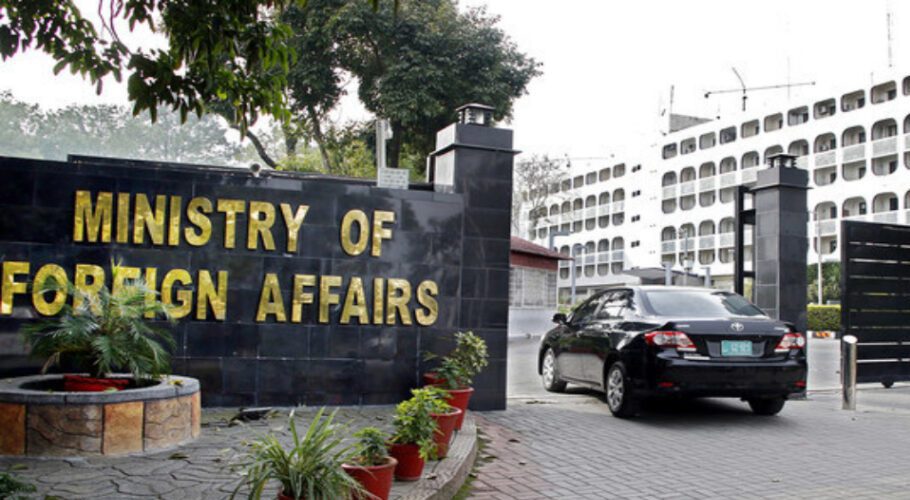The geopolitical landscape of the Middle East is becoming increasingly unstable after recent Israeli attacks. The assassination of key Hamas leaders, including Ismail Haniyeh, Yahya Sinwar, and Abbas Ibrahim Sharfuddin, has heightened tensions between Israel and Iran. Preparations for possible Israeli attacks on Iran’s nuclear facilities and oil infrastructure are gaining momentum. This article will shed light on the implications of these dangerous situations. Iran’s nuclear ambitions, which are days away from developing a nuclear weapon, will fuel Saudi Arabia’s desire to complete its nuclear program and could have wider geopolitical consequences.
Israel sees Iran as an obstacle to the realization of its Greater Israel plan, especially because of its nuclear program, which is now nearing completion. According to John Bolton of America, Israel can prepare its nuclear weapons and deploy them with missiles in its next attack. Israel has been advised by John Bolton to destroy the Iranian nuclear facilities first. Recent events have reinforced Israel’s resolve to counter threats from Iran and its regional allies. The U.S. government, led by President Joe Biden, has also pledged support for Israel in the event of any Israeli attack on Iran, including its nuclear facilities, although it has apparently advised Israel to refrain from a nuclear attack.
An Israeli military attack on Iran’s nuclear facilities could have serious consequences. Iran is likely to use its proxies throughout the Middle East for direct attacks on Israel’s civilian population and severe retaliation. These could include missile attacks on Israel, attacks on U.S. military bases in the region, or increased support for groups such as Hezbollah. This situation could lead to a major regional conflict involving various state and non-state actors and further destabilize the entire region. In such a case, guerrilla action by extremists from other countries in the region or the rise of Islamic fighters against the interests of America and Israel may increase.
Iran’s nuclear ambitions have been a central issue in Middle East politics for the past decade. Despite international agreements, such as the Joint Comprehensive Plan of Action (JCPOA), Iran has continued to pursue its nuclear program, raising concerns among its neighbors and Western powers. Now that Iran has either developed or is close to developing nuclear weapons in the region, this is causing a shift in the balance of power in the region, forcing other countries, especially Saudi Arabia, to rethink their defense strategies.
In the case of Iran’s preparation of nuclear weapons, a security crisis may arise in the Middle East, where neighboring countries will try to strengthen their defense systems. This could trigger an arms race, further escalating tensions and undermining efforts at a diplomatic resolution of conflicts in the region. If Iran gets close to the completion and use of nuclear weapons, Saudi Arabia will also be forced to build nuclear weapons, and the United States, although it is outwardly opposed to it, may look the other way so that Saudi Arabia’s antagonism with Iran continues. In this situation, the harmony of Iran, Saudi Arabia, and the UAE should remain intact.
In the context of Iran’s nuclear ambitions, Saudi Arabia has also shown interest in its nuclear program. Saudi Arabia says it wants to use nuclear technology for peaceful purposes, such as energy production, but the main reasons behind this are related to regional security concerns. If Iran acquires nuclear weapons, Saudi Arabia may be forced to take similar measures to ensure its own security. Pakistan, which is a nuclear power and has historical relations with Saudi Arabia, can play an important role for Saudi Arabia in this regard. This situation may adversely affect Pakistan’s relations with the IAEA and other countries, especially the United States, as the United States may consider the supply of nuclear technology to Saudi Arabia a major security issue. Although it can be ignored under the global scenario.
The ongoing situation in the Middle East, particularly tensions between Israel and Iran and the potential development of the Saudi nuclear program, could have significant global implications. Any conflict between Israel and Iran could seriously disrupt global oil markets, create humanitarian crises, and deepen sectarian divisions in the region. Furthermore, intervention by major powers, such as the United States and Russia, could complicate diplomatic efforts and create a more polarized international environment. In addition, the emergence of new nuclear powers in the Middle East could increase military spending among regional states. Weapons can be acquired very quickly, which can divert resources away from socio-economic development and stabilization efforts.
Current tensions in the Middle East, particularly Iran’s nuclear arsenal, on which diplomatic efforts seem to be dying, pose complex challenges that require careful consideration and diplomatic action. The prospect of a nuclear arms race, especially with Saudi Arabia’s involvement, underscores how dialogue and confidence-building efforts among the region’s powers appear to be failing. As the situation progresses, the international community needs to come together, even as there are few signs that the hope for stability in the region and a peaceful resolution of the conflict is fading.
As the writer was concluding the article, breaking news emerged about a drone strike attack on the premises of Israeli Prime Minister Netanyahu’s house, prompting urgent discussions across media platforms. It potentially provides Israel with full justification to not only retaliate against Hezbollah and Hamas but also to carry out immediate strikes against Iran, escalating tensions in the region, as in the case of an Israeli attack, Iran and its ally Russia would react strongly.
In such a situation, the elites of Pakistan should sit together and complete their planning in advance to deal with the effects and implications of a possible attack by Israel on Iran. Otherwise, the situation for a country like Pakistan could be very difficult.



























